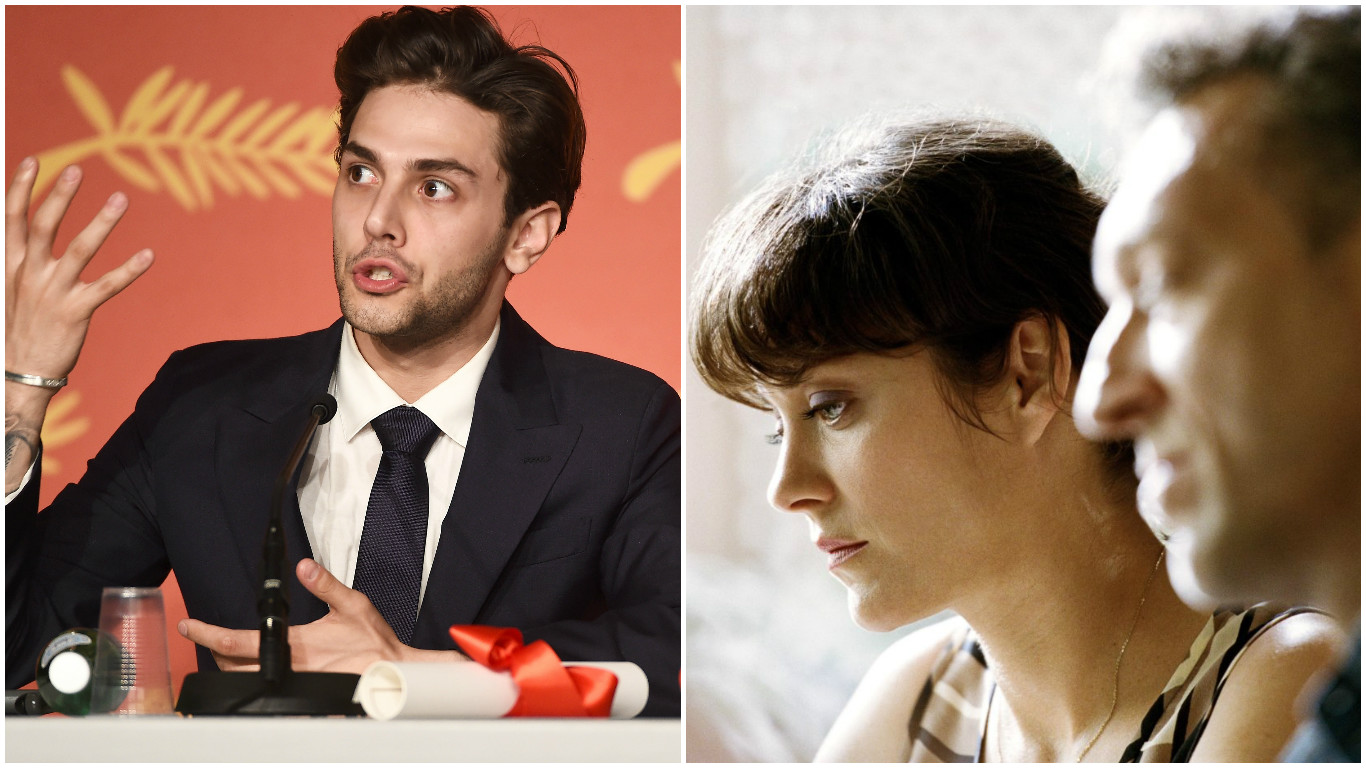
- Film
Xavier Dolan and his Controversial ‘It’s Only the End of the World’
A wunderkind? Self-aggrandizing filmmaker? Ambitious careerist? All of these labels have been applied, with varying degrees of accuracy or truth, to the Quebecois director-writer-actor Xavier Dolan. Only 27, the Montreal-based director has been nothing if not prolific, already claiming six features to his credit. Dolan might become the French-Candaian Woody Allen, not in theme or style so much as in being ultra-prolific, making one film every year since he was 19! In 2009, Dolan made a splashy debut as director, producer, and star with the precociously daring Freudian melodrama, I Killed My Mother, which played at the Directors Fortnight of the Cannes Film Festival, winning the top prize.
He then followed up with the cutting-edge style of Heartbeats (2010), the strangely charming but uneven and long Laurence Anyways (2012), which played at Un Certain Regard, winning the Queer Palm Award, the psychosexual Tom at the Farm (2013), which won the Fipresci prize at the Venice Film Festival, and his breakthrough Mommy (2014), which won a major prize at last year's Cannes Film Festival. Did I mention that Dolan found time to shoot the moody black-and-white video for Adele, Hello?
This year, Dolan disn't disappoint his fans, arriving in Cannes with a new feature, It's Only the End of the World (Juste La Fin du Monde), which played in the Main Competition. Though dividing critics, the dysfunctional family melodrama was awarded the jury prize, reaffirming Dolan's own assessment before the premiere, "This is my best feature to date."
The film's source material proves both liberating and limiting for Dolan as director. With the exception of Tom at the Farm, Dolan's scripts have all been original works until now. However, the new film is an adaptation of a 1990 play by Jean-Luc Lagarce, the French actor-director playwright, who died of AIDS in 1995 at age 38.
Though the theatrical roots are more than visible, what elevates this work above the level of a screeching melodrama is its A-list cast, which includes Nathalie Baye, Vincent Cassel, Marion Cotillard, Léa Seydoux and Gaspard Ulliel. Each of these respectable actors has starred and carried on his/her own shoulders an entire picture, but here they function as an ensemble.
The premise of this overtly theatrical melodrama, largely confined to one setting, is familiar. Ulliel plays Louis, a handsome, thirtysomething gay man who returns home after an absence of 12 years to inform his family that he is dying of AIDS. Melancholy and sad, he is now seeking redemption and rapprochement with each member, especially older, angry brother (Cassel).
For the duration of the drama–which is only 96 minutes–the family members argue, fight, reconcile, and then fight again. But the actors seem to have a field day in carping and tearing apart one another, bringing up all kinds of subjective memories from the distant and recent past.
We never get to know this quintet of people, most of whom come across as self-absorbed and not particularly interesting or positive as dramatis persona. Dolan has said that, upon first reading the play, in 2010, "I never got past page five. It bored me. I just didn't get it." However, "four years later, I felt a need to shoot it. I went back to the play, knowing who I would cast, and I connected with the material. Suddenly I understood it, and loved it."
In this film, Dolan, usually more of a visual stylist and pop artist, deviates from his previous films, perhaps due to his respect for the original drama and superlative cast. But the emotionally intense drama is repetitious and irritating, serving mostly as a platform to display the different acting methods of the two-generational cast.
He relies heavily on restless camera to convey the family's shifting psycho-social dynamics, granting each actor lavish and lengthy close-ups. This is especially the case of the photogenic Ulliel (who recently appeared in Saint Laurent as the famous fashion designer, Yves St. Laurent), and looks a bit like the young Alain Delon. As the mother, vet actress Nathalie Baye overacts and her wig and crude make-up make her look like a monstrous drag queen.
Watching this film, we miss the restless energy, the emotional urgency of Dolan's previous films, which dealt in a daring and bold way with such relevant issues as sexual puberty, troubled adolescence, complex maternity, homosexuality and homophobia, transgenderism (long before it became fashionable).
Dolan still plans to make his English-speaking debut with The Death and Life of John F Donovan, perceiving It's Only the End of the World as a "useful transitional feature." In defense of his picture, he claims to "love how the characters talk, how unlikable they often are, their prolixity and nervousness. He holds that "working with actors is the greatest privilege in directing movies," and that it was a "challenging exercise to have such a strong cast saying those things to each other, with the specificity and singularity of Lagrace's sophisticated dialogue."

